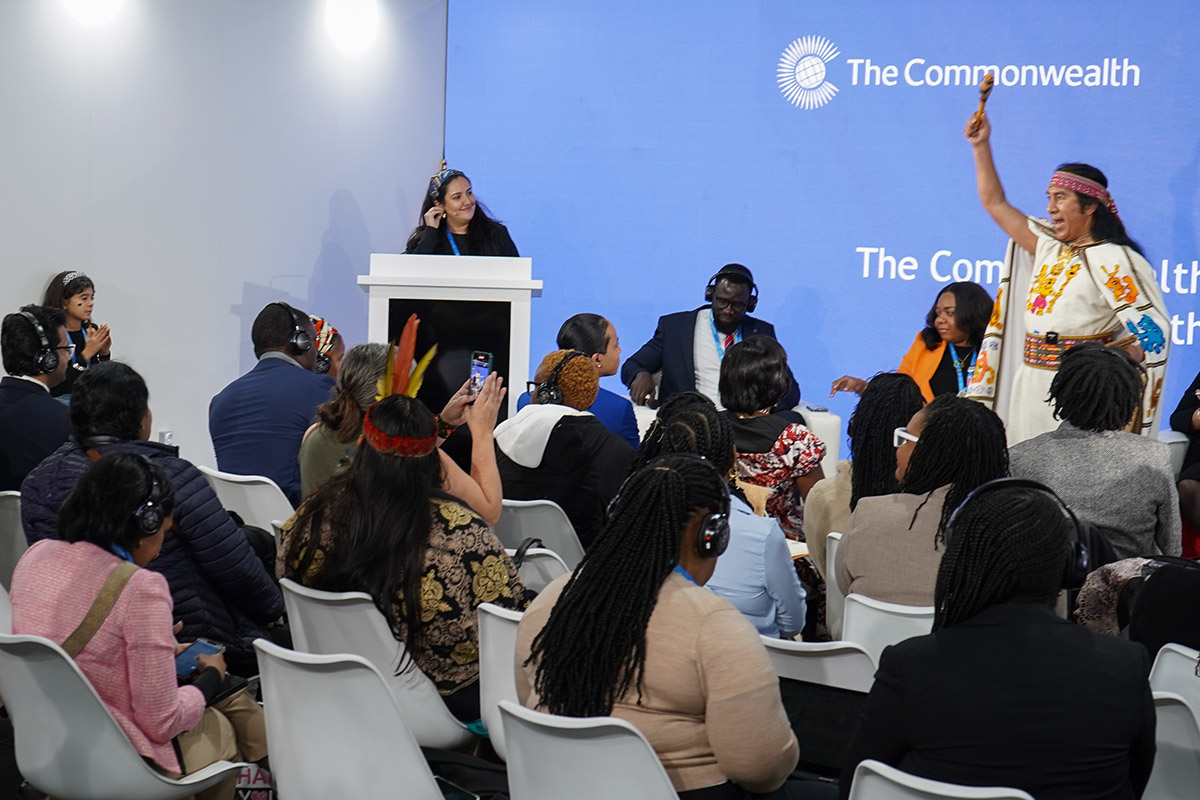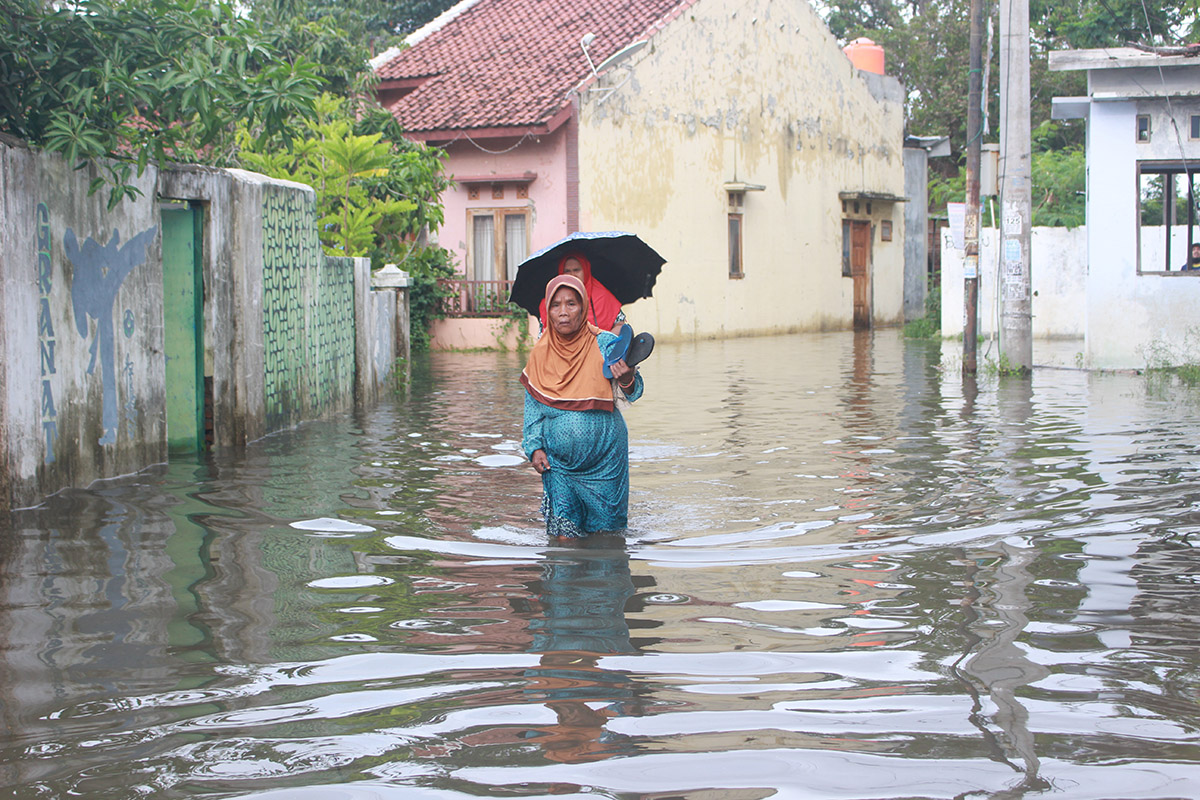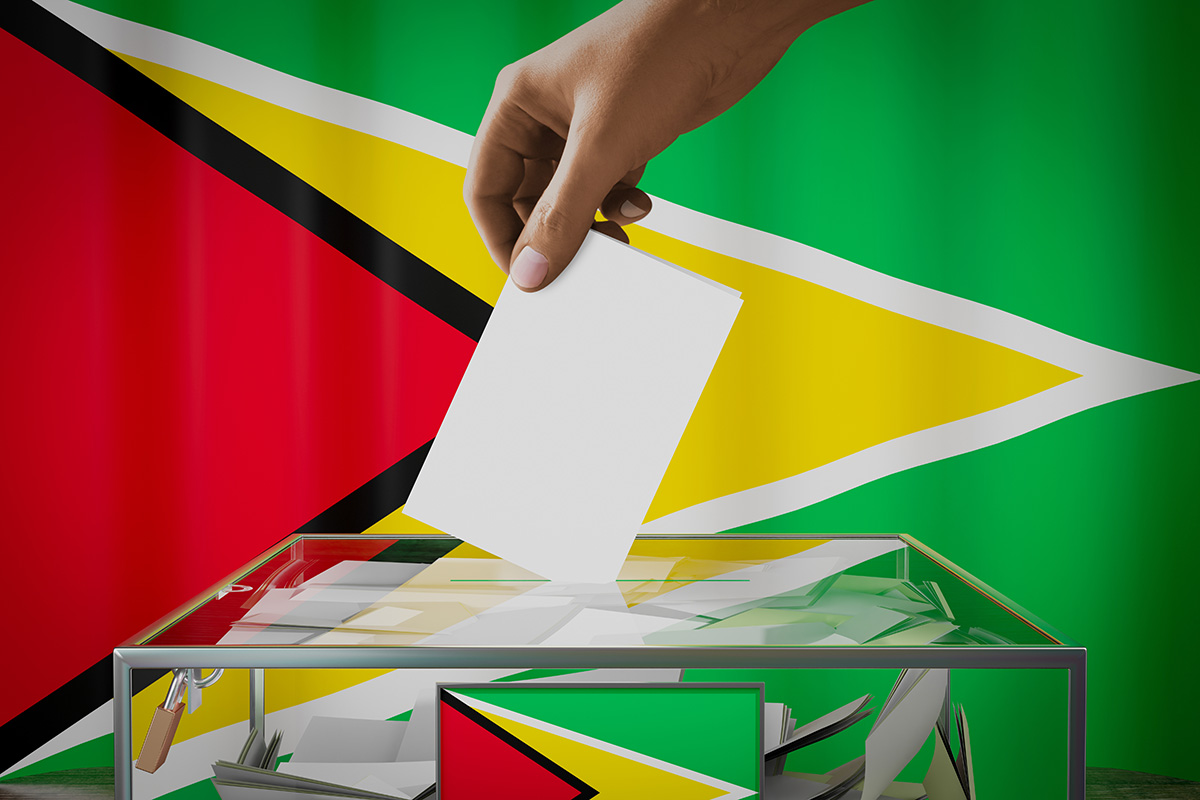COP 30: From Ancestral Wisdom to Action: Indigenous Youth at the Frontlines
August 8by Dra.Dassia Regalado and Ibiso Ikiroma-Owiye
World Indigenous Peoples’ Day, celebrated each year on August 9, is more than a commemoration; it’s a powerful reminder of the resilience, wisdom, and rights of Indigenous communities around the globe. As the climate crisis accelerates, Indigenous youth are emerging as vital leaders in the fight for environmental justice, drawing on ancestral knowledge while navigating modern challenges. Celebrating Indigenous youth leadership is not only about justice and inclusion; it is essential for meaningful, culturally grounded climate action.
At COP29 in Baku, Azerbaijan, Indigenous voices featured heavily in side-events to center and celebrate Indigenous wisdom and role in climate action. The Commonwealth Secretariat’s official COP29 side event was on Indigenous and local knowledge systems for Climate Action: Delivering Together a Resilient future for All, and was co-hosted by Namibia, Seychelles, and the Commonwealth Secretariat. Attendees witnessed the wisdom of the Iwokrama through a stunning short film, which showcased the power of indigenous knowledge, especially when combined with Western science, to support sustainable livelihoods and economies. During the youth-led intergenerational dialogue on climate change at COP29, there was an Indigenous performance honoring the Earth, recognizing the deep cultural connection between Indigenous communities and the natural world.
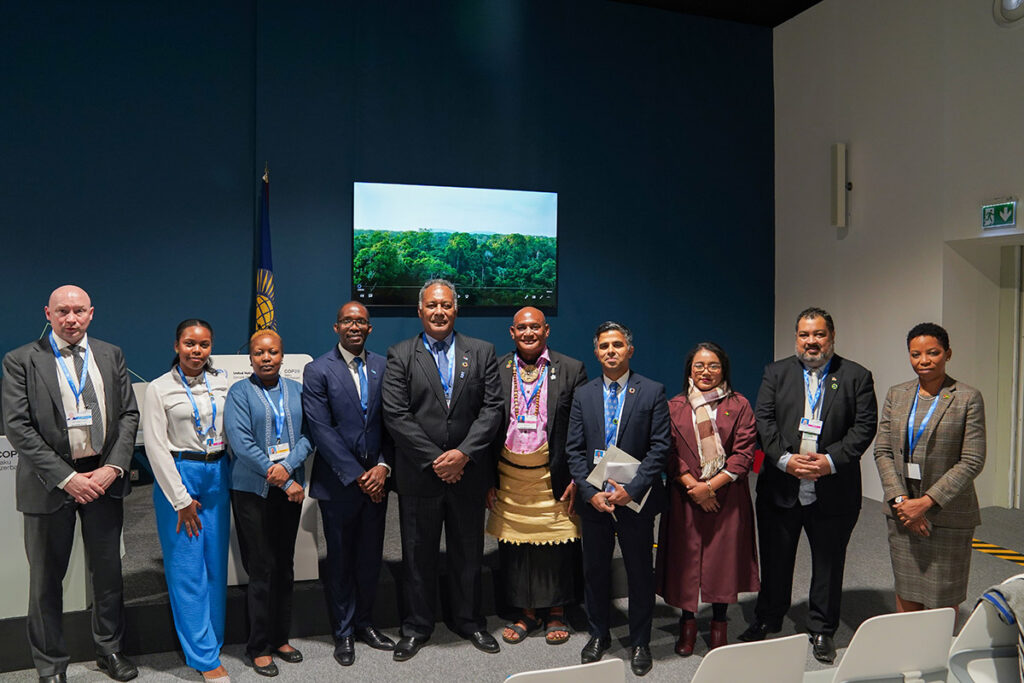
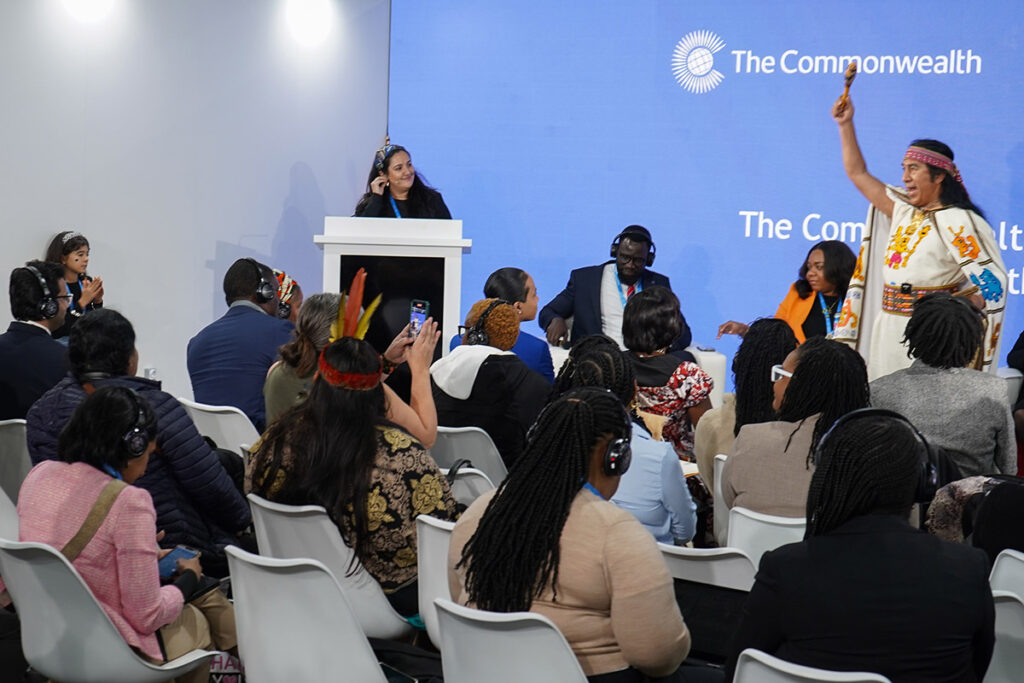
Despite the urgency of the climate crisis, major global forums such as the COP conferences often fall short in upholding Indigenous rights. At COP29, more than 300 Indigenous delegates gathered with the hope of influencing climate negotiations. Yet, they found themselves excluded from key decision-making spaces particularly discussions surrounding the loss and damage fund while their traditional knowledge remained sidelined. As one delegate expressed, “We are rights holders… and must be at the decision-making table.”
Still, there have been notable breakthroughs. During CBD COP16 in Cali, Colombia, a subsidiary body was established to incorporate Indigenous voices in nature conservation decisions—marking a historic shift toward equity in global climate governance. Meanwhile, in Brasília, thousands of Brazilian Indigenous people marched to demand structural inclusion at COP30. Rejecting tokenistic roles, they called for formal leadership positions, including co-presidency. Their efforts resulted in the formation of an “Indigenous Circle of Leadership,” a step toward integrating Indigenous knowledge at the highest levels of decision-making.
Patricia Guaringa of the Quichua people in the Ecuadorian Amazon powerfully connected the experiences of Indigenous communities across continents. Speaking to Africa, she said, “The entire climate catastrophe has occurred based on extraction of oil being justified in obsolete economic models which have violated our rights and discredited our communities… Just as is our ancestral knowledge, we are united by an invisible thread. As the planet earth is united, whose pain if it occurs here affects there and if it occurs there affects here, so therefore we identify with you.” Her words underline a global solidarity grounded in shared struggle and wisdom.
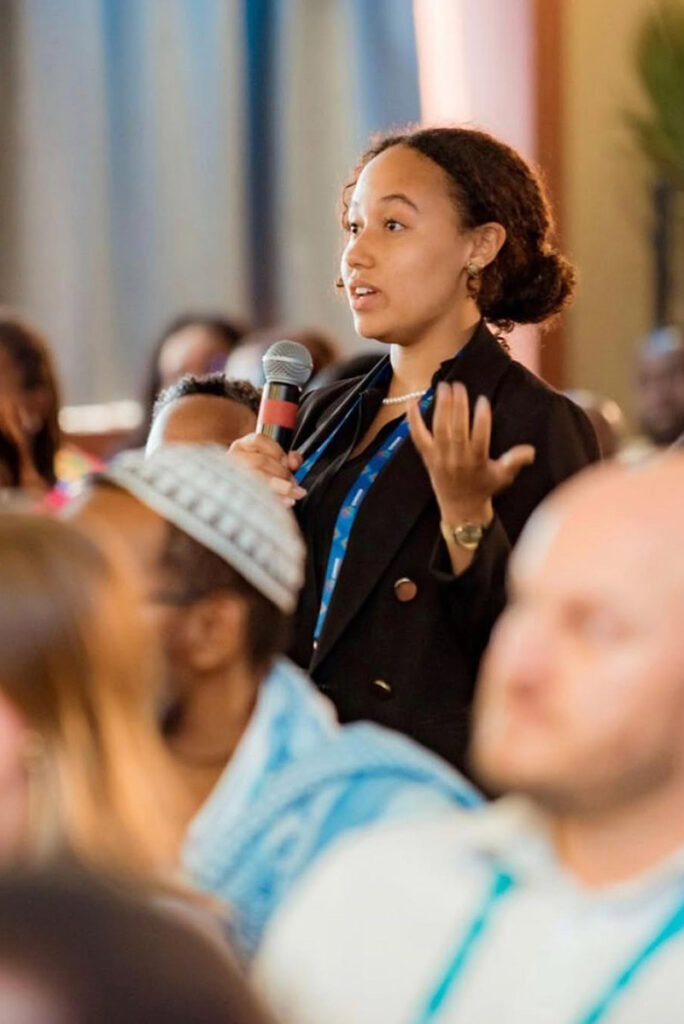
In parallel with climate activism, Indigenous youth are taking leadership in the realm of artificial intelligence and data sovereignty. In New Zealand, Te Hiku Media developed a Māori automatic speech recognition model with over 92 per cent accuracy built using community-controlled data and rejecting commercialization by Big Tech. This initiative highlights the importance of Indigenous data sovereignty, the idea that data, like land, must remain under Indigenous stewardship.
Across other regions, similar principles are taking root. The Lakota AI Code Camp empowers Indigenous youth to design AI tools embedded in their cultural knowledge, flipping the script from passive users to active creators. In the Pacific Northwest, researchers work alongside Indigenous fisheries practitioners to co-design AI systems for monitoring salmon populations, ensuring that technology serves the land and its stewards not the other way around.
These efforts are backed by platforms such as the UNFCCC’s Local Communities & Indigenous Peoples Platform (LCIPP), which ensures Indigenous-selected representatives participate in UN processes. Alongside the International Indigenous Peoples Forum on Climate Change (IIPFCC), these bodies advocate for inclusive participation, funding, and leadership in climate governance.
As Commonwealth youth, we must not only acknowledge these realities we must act. Below are concrete ways we can support Indigenous youth leadership in climate justice and AI spaces:
| Action | Why It Matters |
| Support Indigenous representation in COP, UN biodiversity forums, and local climate councils (e.g. via IIPFCC and LCIPP). | Ensures Indigenous wisdom informs global climate responses. (Native American Rights Fund, iwgia.org) |
| Uphold Indigenous data sovereignty when engaging tech partners—reject AI tools developed without community consent. | Prevents data extraction and supports self‑determination. (Faculty of Arts, ACOLA) |
| Build Indigenous youth AI literacy: support programs like Lakota AI Code Camp and Māori-led efforts. | Turns youth into creators of future solutions rooted in their culture. (EqualAI, TIME) |
| Amplify advocacy campaigns: e.g. Brazil’s Free Land Indigenous Camp, calls for forest stewardship and formal leadership roles at COP. | Demonstrates solidarity with frontline climate defenders shaping global agendas. (AP News) |
From the forests of Brazil to the rivers of the Pacific Northwest, from AI classrooms in New Zealand to UN meeting rooms in Bonn, Indigenous leadership, knowledge, and sovereignty must be recognized and institutionalized. Indigenous voices aren’t just relevant—they are essential to climate justice.
On August 9, 2025, let us commit to uplift, to learn, and to demand systems where Indigenous people don’t just participate, they lead.
